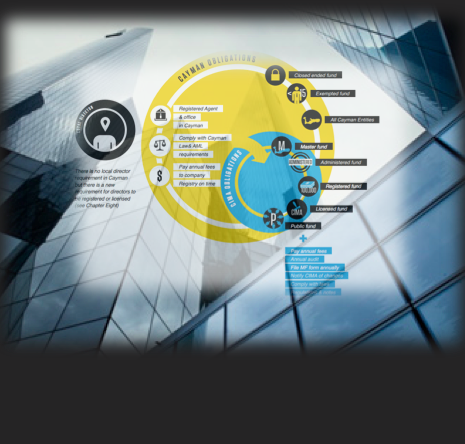The healthcare industry is one of the most heavily regulated sectors in the U.S. economy. In addition to federal regulations, laws and guidelines at state and local levels govern how healthcare providers operate their businesses. Several such complicated regulations are placed on billing.
Compliance can be a daunting task for any organization. However, it is especially difficult for smaller practices that lack access to dedicated HR or IT departments. In fact, a Healthcare Dive article shows that among the 2,000 US hospitals, only a quarter fully comply with pricing.
Many of these healthcare organizations are simply unfamiliar with billing regulations. Hence, in this article, we will look at some common Health and Human Services billing regulations to know about.

The Foundation: Understanding Key Regulations
The first thing to know is that there are two types of billing: direct and indirect. In direct billing, you bill the patient directly for their care. In indirect billing, third parties pay for the care that you provide (such as Medicare or Medicaid). According to an article from NCBI, the frequency of indirect billing is higher than direct billing.
Health and Human Services (HHS) billing regulations in the United States are complex and vary depending on the specific program or service being provided. The regulations are designed to ensure accurate billing, prevent fraud and abuse, and promote transparency in healthcare transactions. Below are key points to understand about HHS billing regulations:
Health Insurance Portability and Accountability Act (HIPAA):
- HIPAA regulates the privacy and security of individuals’ health information.
- It includes the Privacy Rule, which sets standards for the protection of individually identifiable health information.
- The Security Rule outlines security standards to protect electronic health information.
Centers for Medicare & Medicaid Services (CMS):
- CMS is a federal agency within the HHS responsible for administering major healthcare programs, including Medicare and Medicaid.
- CMS establishes billing and coding guidelines for healthcare providers participating in these programs.
Medicare Billing:
- Medicare is a federal health insurance program primarily for individuals aged 65 and older.
- Providers must follow Medicare billing guidelines, including specific codes for services and diagnosis codes.
Medicaid Billing:
- Medicaid is a joint federal and state program that provides health coverage for low-income individuals and families.
- States have flexibility in designing and administering their Medicaid programs, so billing requirements can vary.
National Correct Coding Initiative (NCCI):
- NCCI edits are developed by CMS to promote correct coding and prevent inappropriate payment for Medicare Part B claims.
- These edits identify code pairs that should not be reported together in certain circumstances.
Healthcare Common Procedure Coding System (HCPCS):
- HCPCS is a set of codes used by Medicare and other health insurance programs to represent procedures, supplies, products, and services.
False Claims Act (FCA):
- The FCA imposes liability on individuals and companies who defraud government programs, including Medicare and Medicaid.
- It is a key tool in combating fraud and abuse in healthcare billing.
Electronic Data Interchange (EDI):
- Many billing transactions are conducted electronically using standardized EDI formats to improve efficiency and accuracy.
As you can see, there are many complex regulations to handle. Hence, it is vital to use some technological solutions to comply with them. According to Millin Associates, several long-term care services are usually reimbursed by Medicaid or Medicare. However, there are many regulations associated with getting reimbursed.
A technological solution like billing software or an online platform can help you comply with all regulations. Leveraging health and human services billing software can eliminate the risks of human error. This will ensure that your bills are paid quickly. In fact, these solutions can also be updated with new rules and regulations.
Strategies for Adherence: Best Practices in Health Billing
Adherence to Health and Human Services (HHS) billing regulations is essential for healthcare organizations to ensure compliance and maintain financial stability. One fundamental strategy involves thorough staff education and training on the relevant regulations. This includes keeping all personnel, from frontline staff to management, updated on the latest changes in billing requirements.
Implementing a robust documentation system is another critical aspect of compliance. Accurate and complete documentation not only supports the billing process but also serves as a crucial component in demonstrating compliance with HHS regulations. Healthcare providers must emphasize the importance of maintaining detailed patient records and billing documentation to minimize errors and discrepancies.
Regular internal audits are instrumental in identifying potential billing compliance issues before they escalate. Establishing a systematic auditing process helps organizations proactively address any discrepancies, ensuring that billing practices align with HHS regulations. Internal audits also provide an opportunity to reinforce staff awareness and adherence to compliance protocols.
Collaboration with legal and compliance professionals is indispensable. Establishing open lines of communication between healthcare providers and legal counsel fosters an environment where potential issues can be identified and addressed promptly. Legal experts can offer guidance on interpreting complex regulations and help organizations navigate potential pitfalls, reducing the risk of non-compliance.
The Role of Technology: Leveraging Solutions for Compliance
Technology has already penetrated the healthcare industry. The use of AI and ML has proven effective in clinical procedures. According to an Insider Intelligence article, 23% of medical fraternity survey respondents believe that AI and ML are effective at improving clinical outcomes.
Such technical solutions can also help in complying with billing regulations. For example, technology solutions such as electronic health records (EHRs) can help hospitals manage patient data more efficiently.
A recent study from Oxford Academic Journal shows that EHR adoption increased from 6.6% to 81.2% in the healthcare industry. Similarly, the use of elaborate systems increased from 3.6% to 63.2%.
The use of AI and ML with EHR systems is gaining prominence, as it can help with predictive analytics and data-driven insights. Technology enables healthcare providers to analyze historical billing data, identify trends, and predict potential compliance issues. This proactive approach allows organizations to address concerns before they escalate, fostering a culture of continuous improvement in adherence to HHS billing regulations.
Another key aspect is the implementation of advanced billing software that integrates seamlessly with EHR systems. This facilitates real-time documentation and billing, reducing the likelihood of errors and ensuring compliance with HHS guidelines. Automation of billing processes not only enhances efficiency but also minimizes the risk of manual mistakes, contributing to accurate reimbursement for healthcare services.
Interoperability is another critical element in leveraging technology for HHS billing compliance. Seamless data exchange between different healthcare systems and stakeholders ensures the consistency of information required for billing purposes. This interoperability aids in aligning billing practices with evolving HHS standards and regulatory updates.
To conclude, mastering Health and Human Services billing regulations is not only a legal obligation but also a strategic imperative for healthcare organizations. Navigating the intricate landscape of federal and state regulations is essential to promoting transparency, financial stability, and delivering quality healthcare services to patients. As the regulatory landscape continues to evolve, organizations must remain vigilant, adapting their practices to ensure ongoing compliance.
HedgeThink.com is the fund industry’s leading news, research and analysis source for individual and institutional accredited investors and professionals




































